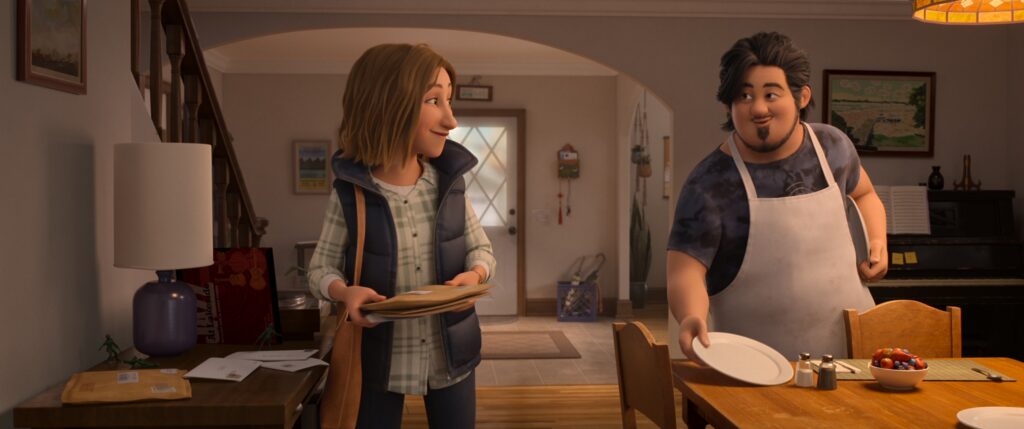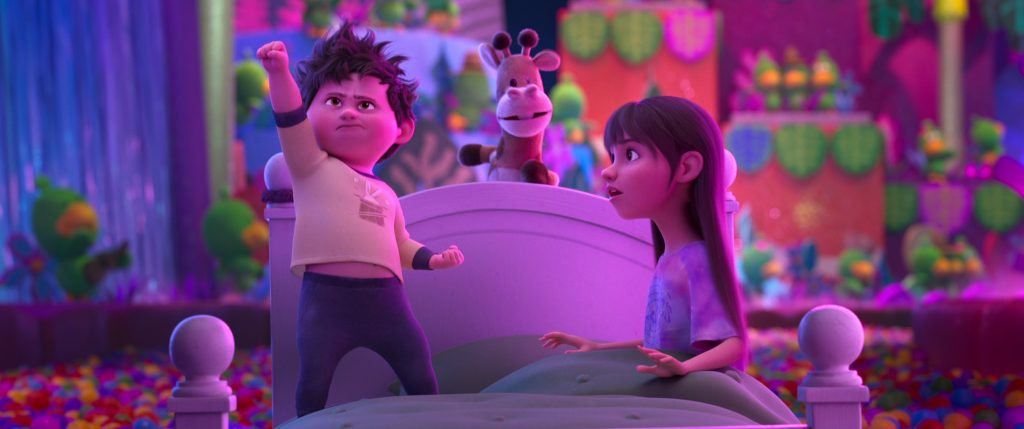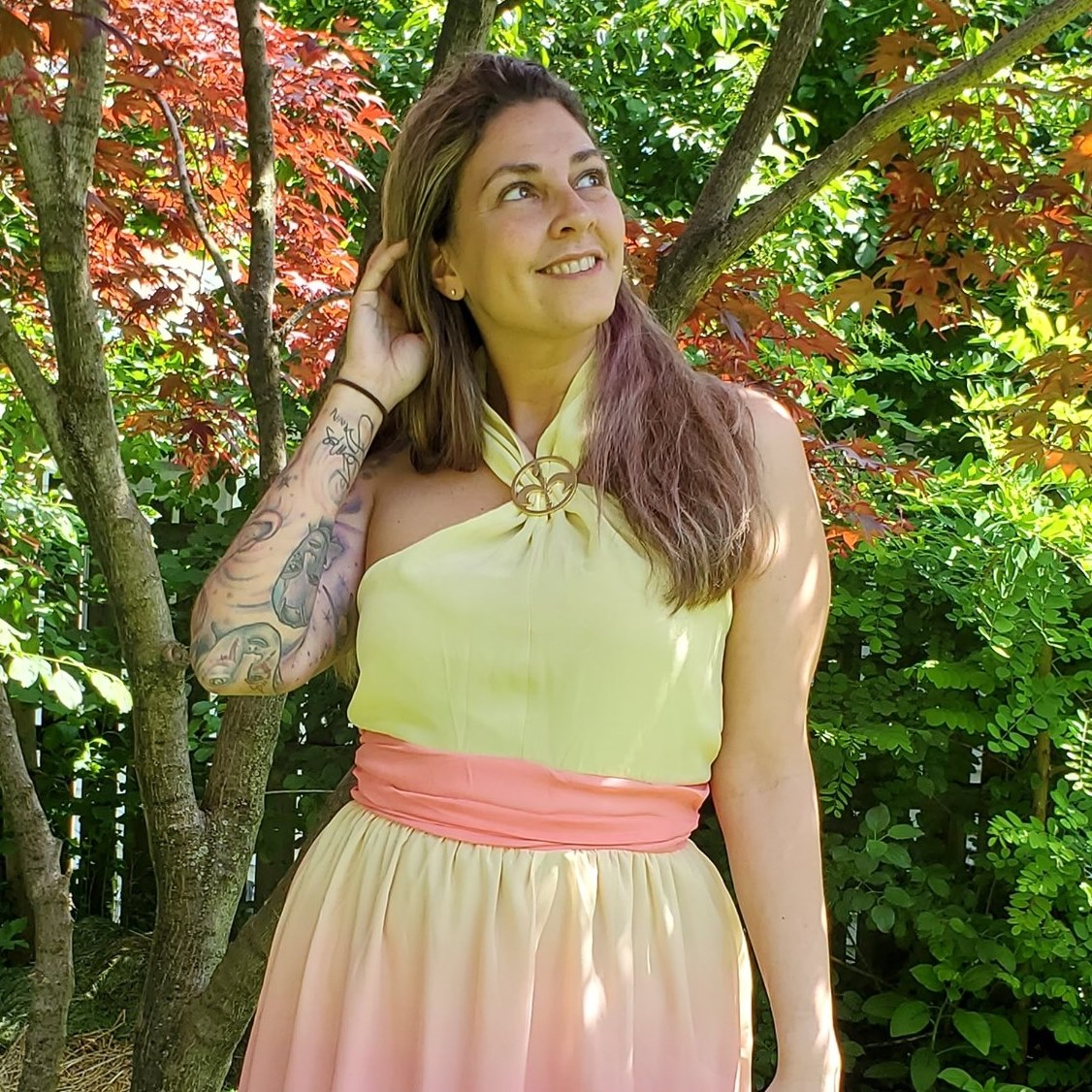In Your Deams‘ writer and director Alex Woo dives into the film’s ambiguous ending and the deeper meaning of Nightmara, in this interview.
Netflix’s In Your Dreams is a must-watch animated film that is sure to steal your heart. It tells the story of a young girl named Stevie and her brother Elliot as they journey to find the Sandman, hoping to make their dreams come true. The terrifying Nightmara stands in their way, as they must tackle their nightmares as they try to keep their family together.
Spoiler Warning: The following Q&A discusses key plot points and the conclusion of the film, so be sure to stream In Your Dreams on Netflix before reading on!
Mama’s Geeky sits down with writer and director Alex Woo to explore the film’s deeper themes, including the deeply personal inspiration behind the ending and the unexpected role of the character Nightmara.
The Importance of In Your Dreams’ Ambiguous Ending

Mama’s Geeky: I love how the end is ambiguous and it’s just the parents willing to try. Can you talk about the importance of including that in the movie?
Alex Woo: Yeah. It was a really tricky ending to land, and I’m so happy with where we landed with this film. A lot of it was just inspired by my own family. Again, when I was a kid, my parents almost split up, I was like six or seven. My mom, eventually she came back, you know, they, my parents stayed together. Then when I went off to college, she went away again. They were empty nesters at that point. My brother had gone off to college and my parents were living in Hong Kong and she moved to LA.
My mom was a bit of a dreamer. She wanted to be an actress. And so she tried to make it in LA as an actor, but it was hard. She was, at that point, in her late forties or early fifties. And it’s hard enough for women to get roles at that age without any established career. But she tried it for a few years and then it didn’t work out. And she ended up coming back, moving back to Hong Kong.
And then again, when I was making this movie during the pandemic she wanted, she thought about leaving my father again. So it’s just been this ebb and flow with them and our family. And I just thought, you know, that it doesn’t, ultimately at the end of the day, it doesn’t really matter what the labels are, what their official status is. My mom’s always going to be my mom, my dad’s always going to be my dad. They’re always going to love each other in their own way.
We’re always going to be a family, no matter where they are geographically or what their official status is. So that was the inspiration for the ending of leaving it. Like, you know what, it doesn’t matter. No matter what happens, where life takes them, they’re always going to be a family and they’re always going to be there for each other. That was where that ending came from.
Alex Woo On Capturing the Messiness of Real Life

Mama’s Geeky: It’s so real, and I love it. I think it’s important not just to be like, oh, and now everybody’s happy in the end, because that’s not life.
Alex Woo: Yeah. At the end, when the parents are bringing out that last box, it says fragile on there, and that’s sort of a metaphor for their relationship. They’re trying to move that final box onto the back of the truck, and they’re just not on the same page. Mom’s going left, Dad’s going right. They’re trying to communicate, but they’re not quite in sync.
And then at the very end, they both get in separate cars and are driving off, and it feels like, okay, this is the happy ending that everybody’s been waiting for. And then the back of the truck opens up and all the boxes fall out. And that is just the way life is. It is constantly a mess. I love how we captured that in the ending of the film.
The Unexpected Beauty of Nightmares

Mama’s Geeky: I want to talk about Nightmara. She’s gorgeous. I love her, but I love how she’s not super scary for kids. And then, turns out she’s trying to protect the kids. Can you talk about making her that key part of this story?
Alex Woo: From the very beginning of this film, what I wanted to do thematically was flip the charge on dreams and nightmares. I think, especially in American culture, there’s so much pressure on people and kids to be perfect, to make their dreams come true. And I think some amount of that is healthy, but there’s a dark side to it because if you don’t achieve your dreams, if your life isn’t perfect, you feel like something’s wrong with you or that you failed or that you’re a loser or something. I just think that’s so untrue.
Because there’s so much pressure to achieve your dreams, you can get lost in that pursuit and neglect everything else around you in your life. I wanted to ground dreams a little bit. And nightmares, obviously it’s challenging, and you want to avoid nightmares in your life, metaphorical nightmares. But when I look back on my life, the things that have changed and shaped me the most have been the times when I’ve been at my worst and life has been really down on me.
I’ve learned a lot from those moments. I’ve changed and I’ve grown. And then more importantly, whenever that happens, the people in my life who love me, my family, my friends, they come to help me and get through all those things. And that is the beauty of nightmares. They really help prepare us for life’s challenges, life’s unknowns, and its uncertainty. So I feel like there’s a real purpose that nightmares serve in our lives.

In Your Dreams is a beautiful, thoughtful film that offers as much heart as it does adventure. If you haven’t yet, be sure to stream the film now on Netflix. For more details and insights from Alex Woo, don’t forget to watch the full interview video.
NEXT: The Mighty Nein Interview: Critical Role & Showrunner Tasha Huo

Tessa Smith is a Rotten Tomatoes Tomatometer-approved Film and TV Critic. On Camera personality and TV / Film Critic with 10+ years of experience in video editing, writing, editing, moderating, and hosting.

